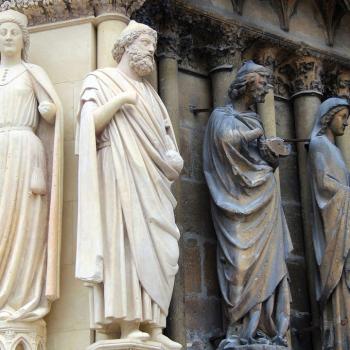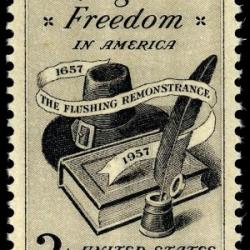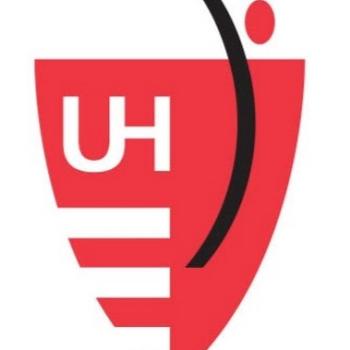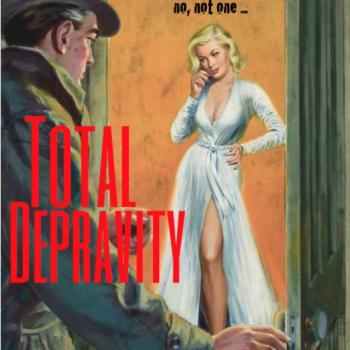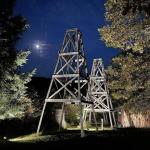“Blessed are those who pretend to be persecuted, for they shall reap truckloads of cash and live like Hollywood stars.”
No, that’s not from the Bible. It’s my paraphrase of Bob Smietana’s scrupulous piece of investigative journalism for The Tennessean: “Christian crusaders cash in: Sekulow’s family, firm collect millions.”
Jay Sekulow is the head of the American Center for Law and Justice. The legal charity was founded in 1990 by televangelist and former Republican presidential candidate Pat Robertson to be a kind of sectarian variation on the ACLU. The ACLJ has since become a kind of organizational embodiment of the weird persecution complex that drives the behavior of much of America’s privileged majority religion.
Sekulow also runs the closely associated charity CASE (“Christian Advocates Serving Evangelism”). According to The Tennessean’s Smietana:
Since 1998, the two charities have paid out more than $33 million to members of Sekulow’s family and businesses they own or co-own, according to the charities’ federal tax returns, known as form 990s.
One of the charities is controlled by the Sekulow family — tax documents show that all four of CASE’s board members are Sekulows and another is an officer. …
Over the past two decades ACLJ has argued for legitimate cases in defense of the free exercise of religion, including the 1993 Lamb’s Chapel case. That case involved equal access to public facilities for religious groups. A school in New York state allowed outside groups use of the premises when school was not in session, but sought to deny the Lamb’s Chapel group that same access.
The ACLJ joined the ACLU in defending the religious group’s right to equal access. That alliance illustrates the difference between the ACLU and the ACLJ.
The ACLU, as its name indicates, exists to defend the civil liberties of anyone in America. In 1993, that meant defending the right of a conservative evangelical church group to show a series of James Dobson films in a public facility that was supposed to be open to all. That same year it also meant defending the religious freedom of a congregation of Santeria practitioners in Hialeah, Fla.
Here’s the summary of the Hialeah case from Oyez.org:
The Church of Lukumi Babalu Aye practiced the Afro-Caribbean-based religion of Santeria. Santeria used animal sacrifice as a form of worship in which an animal’s carotid arteries would be cut and, except during healing and death rights, the animal would be eaten. Shortly after the announcement of the establishment of a Santeria church in Hialeah, Florida, the city council adopted several ordinances addressing religious sacrifice. The ordinances prohibited possession of animals for sacrifice or slaughter, with specific exemptions for state-licensed activities. …
The ACLU fought to defend civil liberties and religious freedom in both Lamb’s Chapel v. Center Moriches Union Free School District and Church of Lukumi Babalu Aye v. City of Hialeah because that is what the ACLU does: It defends civil liberties and religious freedom.
The ACLJ fought for religious freedom and civil liberties in Lamb’s Chapel because the plaintiffs were evangelical Christians. The ACLJ did not fight for religious freedom and civil liberties in Hialeah because the plaintiffs in that case were not evangelical Christians. This is what the ACLJ does: It defends the interests and privileges of evangelical Christians in legal disputes.
The ACLU, of course, is much larger than the ACLJ, and it might just be that the smaller group took a walk on Hialeah in order to preserve its limited resources by focusing only on particular cases involving a particular sort of plaintiffs.
But that’s not what’s going on with the ACLJ. It’s not just focused on protecting the rights of one particular religious sect — it actively opposes the free exercise of those rights by other sects. The ACLJ, for example, has been at the forefront of efforts to bar Islamic congregations from simply purchasing private property for their own use — such as the Manhattan cultural center that ACLJ mischaracterizes as “the ground-zero mosque” (it’s neither a mosque nor at ground zero).
This distinguishes the ACLJ not just from the ACLU, but from most religious groups here in America. Most religious groups recognize that a threat to the religious liberty of any sect is a threat to the religious liberty of all sects. That’s why a host of religious groups filed amicus briefs in Hialeah in support of the Santeria church. All of the major Christian denominations did so, as well as several different Jewish groups, the Mormons and a wide assortment of groups representing those who usually have to check the box marked “other” on surveys asking about their religion. Hialeah’s statute, they all said, clearly restricted the Santeros’ free exercise of religion and therefore clearly violated the First Amendment.
The Rehnquist Court agreed, emphatically — ruling 9-0 in favor of the Church of Lukumi Babalu Aye. The decision was celebrated by all those other religious groups as a victory. None of them was directly affected by the statute or directly relieved by its being overturned, but they recognized that a threat to the religious freedom of Santeros was also a threat to their own religious freedom and that defending their own rights also entails defending those rights for others.
Sekulow & Co. don’t seem to understand that. Or else they understand it, but just don’t care. That’s why I say that the ACLJ doesn’t exist to defend civil liberties and religious freedoms, but rather that it exists to defend the interests and privileges of evangelical Christians.
Or that’s what I used to say about the ACLJ before reading Bob Smietana’s excellent reporting in The Tennessean.
After reading that, I no longer believe that the ACLJ’s reason for existence has anything to do with the sectarian interests of the evangelical Christians it nominally defends. I now believe it exists only to keep Jay Sekulow and his relatives rolling in cash and luxuriating in the lifestyle to which they have become accustomed.
Since 1998, the two charities have paid out more than $33 million to members of Sekulow’s family and businesses they own or co-own, according to the charities’ federal tax returns, known as form 990s. …
Among the payments since 1998:
- $15.4 million to the Constitutional Litigation and Advocacy Group, a law firm co-owned by Jay Sekulow. According to the 2009 tax form, he owns 50 percent of CLAG. The firm was known as the Center for Law and Justice when it received some of the payments.
- $5.7 million to Gary Sekulow, Jay Sekulow’s brother. He is paid for two full-time jobs — as CFO of both the American Center for Law and Justice, or ACLJ, and Christian Advocates Serving Evangelism, or CASE. In 2009, his combined compensation topped $600,000.
- $2.74 million in private jet lease payments to Regency Productions, a company owned by Jay Sekulow, and PFMS, a company owned by his sister-in-law, Kim Sekulow.
- $1.78 million to Regency Productions for leasing office space and media production.
- $1.11 million to PFMS for administrative and media buying services.
- $1.6 million to Pam Sekulow, Jay Sekulow’s wife, including a $245,000 loan from CASE, which she used to purchase a home from the charity. The balance of the loan was later forgiven over several years and reported on the 990s as income.
- $681,911 to Jay Sekulow’s sons, Logan and Jordan, for media work and other duties at CASE. …
A donor to ACLJ wouldn’t know how much Sekulow is earning from his work with the organization, even though he is described as CEO, chief counsel and board member on its tax forms. ACLJ reports that Sekulow has taken no salary since 2002.
However, ACLJ’s 2009 tax form shows it paid $2,382,770 to the law firm 50 percent owned by Sekulow — Constitutional Litigation and Advocacy Group. The fact that the law firm is half-owned by Sekulow is not found in ACLJ’s tax filings. Hoover confirmed that the law firm pays Sekulow, but the firm does not disclose how much Sekulow is paid. The firm’s office address is in a building owned by CASE.
In addition, Sekulow was paid $85,747 by CASE in fiscal year 2009. …
In a phone call, Ronn Torossian, a public relations executive serving as ACLJ’s spokesman, portrayed Sekulow as a great lawyer getting by on modest pay.
“You are asking about one of the most successful lawyers in the country whose income is very small and owns a very small home,” he said.
Property records show Jay and Pam Sekulow own three homes, including one they bought in 2008 in Franklin for $655,000 and another in Norfolk, Va., bought in 2005 for $690,000. Their third home, which once belonged to CASE, is in Waynesville, N.C., and is assessed at $262,800, according to Haywood County, N.C., tax records.






